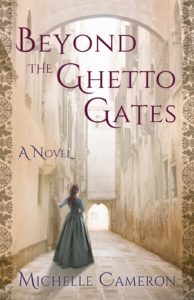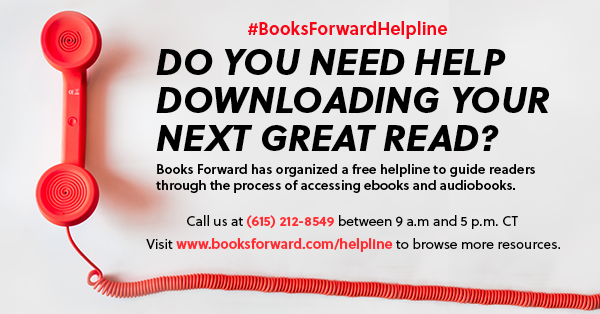FOR IMMEDIATE RELEASE:
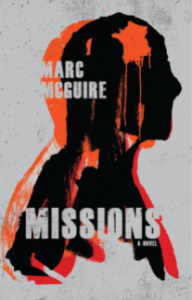 SAN FRANCISCO — An explosion in the heart of Paris launches an international investigation that propels Doyle O’Gara, a computer scientist at a technology supplier to the CIA, from the periphery of the new war into its moral nerve center in Missions (April 16, Black Rose Writing) the debut novel of international lawyer Marc McGuire. As the suspense-filled investigation leaps from one surprising clue to the next, O’Gara hurtles toward a disastrous miscalculation and a moral dilemma that tests him and the country he serves.
SAN FRANCISCO — An explosion in the heart of Paris launches an international investigation that propels Doyle O’Gara, a computer scientist at a technology supplier to the CIA, from the periphery of the new war into its moral nerve center in Missions (April 16, Black Rose Writing) the debut novel of international lawyer Marc McGuire. As the suspense-filled investigation leaps from one surprising clue to the next, O’Gara hurtles toward a disastrous miscalculation and a moral dilemma that tests him and the country he serves.
The book is a fast-paced, thought-provoking political thriller with an offbeat plot and unexpected outcomes. The resurgence of Islamic jihad has inspired several best-selling novels, but Missions delves more deeply into the dark recesses of the human spirit that permit a select few to murder in the name of God or politics. These new enemies emerge from the story not as cardboard background villains but rather as complex personalities fighting for causes they believe justify their crimes.
With equal candor, Missions probes the corrosive effects such crimes may have on the liberal values of a free society. Seemingly minor errors in the translation of intercepted messages, combined with Doyle O’Gara’s silence during a critical meeting with the CIA, lead the investigation awry as French and American authorities rush to prevent a second attack. When O’Gara confronts the consequences of his mistakes in a Marseille hospital burn ward and finds himself facing criminal charges back home, he cannot avoid haunting questions about his personal responsibility in the midst of his nation’s war.
 MARC McGUIRE is an American-born international business lawyer who has lived much of his career in Europe, first in Zurich, Switzerland, and later in Paris, France. He received his J.D. from UCLA School of Law, and he currently resides in California. Missions is his authorial debut.
MARC McGUIRE is an American-born international business lawyer who has lived much of his career in Europe, first in Zurich, Switzerland, and later in Paris, France. He received his J.D. from UCLA School of Law, and he currently resides in California. Missions is his authorial debut.
Missions
Marc McGuire | April 16, 2020
Black Rose Writing | Political Thriller
Paperback | 978-1684334605 | $18.95
In an interview, Marc McGuire can discuss:
- Why he chose to write a novel about Islamic jihad and the war the West declared against it
- The impact of the conflict on the current generation of readers
- His decision to set Missions in the early days of the new war
- How his time living in Paris and Washington, D.C. influenced the story
- The influence of his legal background on various aspects of the novel
- How he branched out from being an international lawyer to becoming a novelist
An interview with Marc McGuire
1. How did you select the subject matter for Missions?
I wanted my first novel to arise from historical events that transformed my generation in some powerful way. One of my top candidates was the attack on Sept. 11 and its aftermath. Nothing else during my lifetime has stirred such a variety of strong emotions among so many people: feelings of loss, anger, fear, patriotism, suspicion, disillusionment and many other emotions. Missions takes place during the first year following the 9/11 attacks, when those feelings are still raw and the transformations of our society are still underway.
2. Much of the action in Missions takes place in Paris. How did your time living abroad affect the writing?
It is a big advantage to write about places one knows. Having lived in Paris for eight years, I can envision in some detail the scenes inhabited by Christine Dupont, the lead French investigator, as she pursues the urban jihadists. I have also spent considerable time in the other places featured in the novel: Washington, D.C., Marseille, Berlin, Istanbul and London. Following the characters into familiar environments helps me imagine what they are seeing and hearing, such as the experience of Mohammed Jamal and Sheik Musawi, two of the Paris plotters, meeting late at night on Austerlitz bridge over the Seine.
3. How has your experience in international law influenced the book?
Since I first began my law studies, I have always been fascinated by how societies resolve human conflicts and power relationships within various kinds of legal systems or, at times, outside such legal systems. In Missions, you can see one approach followed by the CIA against Doyle O’Gara and quite another followed by Mohammed Jamal and the Paris jihadists. Both approaches seem to fall short of achieving justice, but there are big differences between the two in terms of human costs and consequences.
4. Why did you set the story during the early days of the war against Islamic jihad?
That was a time period when the adversaries on both sides were developing their strategies for the long conflict ahead. The story in Missions may raise questions about where those early strategies are leading humanity today.
5. What does Missions tell us about the human condition?
Doyle O’Gara has a few things in common with Ali Benhadj, the Paris bomber, as well as many important differences. I think it is significant and a bit depressing that someone like Benhadj is capable of committing an act of suicide-murder, taking his own life and the lives of others who have never hurt or threatened him, all in the name of abstract ideas like Islam, while O’Gara is equally capable of killing adversaries he has never met, finding justification in different abstract ideas. As far as I know, humans are the only creatures on earth capable of such ideologically driven killing of their fellow creatures.

A former award-winning journalist with national exposure, Marissa now oversees the day-to-day operation of the Books Forward author branding and book marketing firm, along with our indie publishing support sister company Books Fluent.
Born and bred in Louisiana, currently living in New Orleans, she has lived and developed a strong base for our company and authors in Chicago and Nashville. Her journalism work has appeared in USA Today, National Geographic and other major publications. She is now interviewed by media on best practices for book marketing.
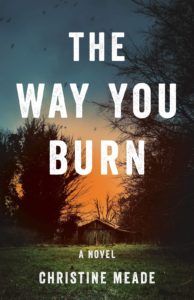 BOSTON, MA
BOSTON, MA 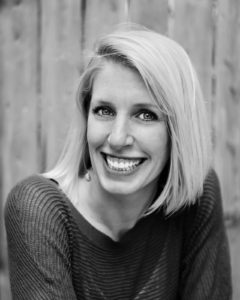

 Pastor, expert “indoorsman” and award-winning author
Pastor, expert “indoorsman” and award-winning author 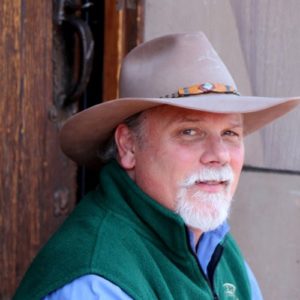
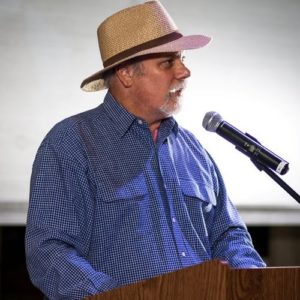 The ninth great-grandson of legendary privateer Captain William Kidd, Samuel Marquis is the bestselling, award-winning author of a WWII Series, the Nick Lassiter-Skyler International Espionage Series, The Joe Higheagle Environmental Sleuth Series, and a historical fiction novel centered on the infamous pirate, Blackbeard. His novels have been #1 Denver Post bestsellers, received multiple national book awards (Foreword INDIES, American Book Fest’s Best Book Awards, Beverly Hills Book Awards, IPPY, Next Generation Indie Awards, Colorado Book Awards), and garnered glowing reviews from #1 bestseller James Patterson, Kirkus, and Foreword Reviews. Book reviewers have compared Marquis’s WWII thrillers “Bodyguard of Deception,” “Altar of Resistance,” and “Spies of the Midnight Sun” to the epic historical novels of Tom Clancy, John le Carré, Ken Follett, Herman Wouk, Daniel Silva, Len Deighton, and Alan Furst. For more information on Marquis’s life and work, visit
The ninth great-grandson of legendary privateer Captain William Kidd, Samuel Marquis is the bestselling, award-winning author of a WWII Series, the Nick Lassiter-Skyler International Espionage Series, The Joe Higheagle Environmental Sleuth Series, and a historical fiction novel centered on the infamous pirate, Blackbeard. His novels have been #1 Denver Post bestsellers, received multiple national book awards (Foreword INDIES, American Book Fest’s Best Book Awards, Beverly Hills Book Awards, IPPY, Next Generation Indie Awards, Colorado Book Awards), and garnered glowing reviews from #1 bestseller James Patterson, Kirkus, and Foreword Reviews. Book reviewers have compared Marquis’s WWII thrillers “Bodyguard of Deception,” “Altar of Resistance,” and “Spies of the Midnight Sun” to the epic historical novels of Tom Clancy, John le Carré, Ken Follett, Herman Wouk, Daniel Silva, Len Deighton, and Alan Furst. For more information on Marquis’s life and work, visit  SOLDIERS OF FREEDOM (March 2020)
SOLDIERS OF FREEDOM (March 2020)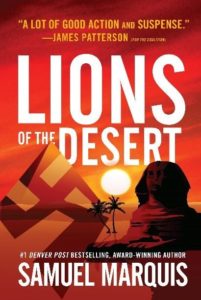 LIONS OF THE DESERT (February 2019)
LIONS OF THE DESERT (February 2019)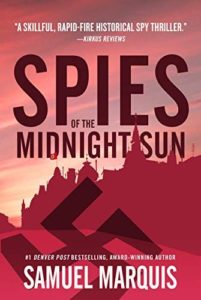

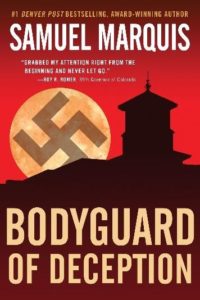
 BLACKBEARD: THE BIRTH OF AMERICA (January 2018)
BLACKBEARD: THE BIRTH OF AMERICA (January 2018)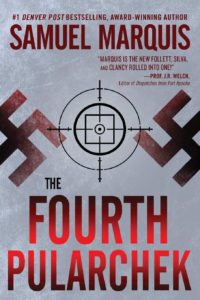
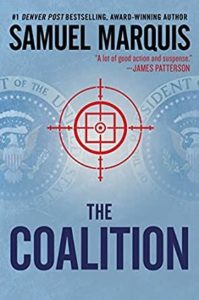
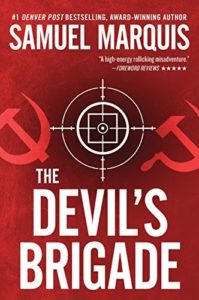 THE DEVIL’S BRIGADE (September 2015)
THE DEVIL’S BRIGADE (September 2015)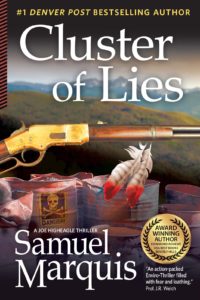 CLUSTER OF LIES (September 2016)
CLUSTER OF LIES (September 2016)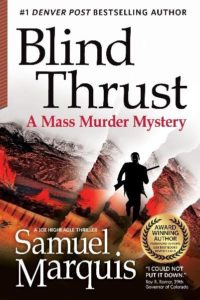 BLIND THRUST (October 2015)
BLIND THRUST (October 2015)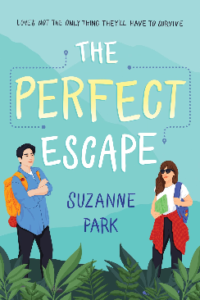
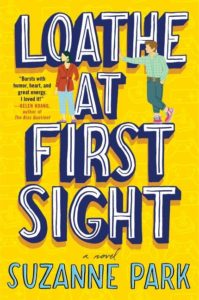
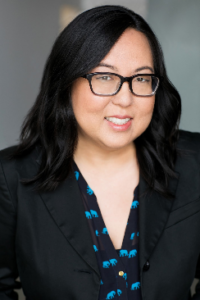 Suzanne Park is a Korean-American writer who was born and raised in Tennessee. In her former life as a stand up comedian, she was a finalist in the Oxygen Network’s “Girls Behaving Badly” talent search, and appeared on BET’s “Coming to the Stage.” She found this to be the funniest thing in her comedy career because, well, she is not black. Suzanne was also the winner of the Seattle Sierra Mist Comedy Competition, and was a semi-finalist in NBC’s “Stand Up For Diversity” showcase in San Francisco. Suzanne graduated from Columbia University and received an MBA Degree from UCLA. After spending many years as a tech marketing executive, she turned to writing fiction full-time. She currently resides in Los Angeles with her husband, female offspring, and a sneaky rat that creeps around on her back patio. In her spare time, she procrastinates. Keep up with her at
Suzanne Park is a Korean-American writer who was born and raised in Tennessee. In her former life as a stand up comedian, she was a finalist in the Oxygen Network’s “Girls Behaving Badly” talent search, and appeared on BET’s “Coming to the Stage.” She found this to be the funniest thing in her comedy career because, well, she is not black. Suzanne was also the winner of the Seattle Sierra Mist Comedy Competition, and was a semi-finalist in NBC’s “Stand Up For Diversity” showcase in San Francisco. Suzanne graduated from Columbia University and received an MBA Degree from UCLA. After spending many years as a tech marketing executive, she turned to writing fiction full-time. She currently resides in Los Angeles with her husband, female offspring, and a sneaky rat that creeps around on her back patio. In her spare time, she procrastinates. Keep up with her at 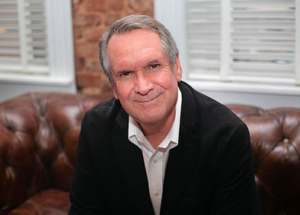 Pat McKee: Orphaned at age 13, Pat McKee moved from Florida to Clinton, South Carolina with his younger siblings. There, they arrived at Thornwell Orphanage where Pat learned the value of education and the importance of hard work and leadership. Pat went on to study at Presbyterian College, Georgia State University, and Emory University School of Law. Pat later founded the law firm McKee & Barge where he represents educators and educational institutions. Always a lover of the written word, Pat decided in 2010 to enroll in the Masters of Professional Writing Program at Kennesaw State University where he combined his legal knowledge with imaginative storytelling and a newly sharpened writing technique. A member of the Atlanta Writers Club, Pat was awarded the honor of Best Manuscript Sample for “Ariel’s Island” in both 2017 and 2018. When Pat isn’t writing legal thrillers, he’s spending time with his wife in their Georgia home, or visiting their two children and their granddaughter. To learn more about Pat McKee’s life and work, visit
Pat McKee: Orphaned at age 13, Pat McKee moved from Florida to Clinton, South Carolina with his younger siblings. There, they arrived at Thornwell Orphanage where Pat learned the value of education and the importance of hard work and leadership. Pat went on to study at Presbyterian College, Georgia State University, and Emory University School of Law. Pat later founded the law firm McKee & Barge where he represents educators and educational institutions. Always a lover of the written word, Pat decided in 2010 to enroll in the Masters of Professional Writing Program at Kennesaw State University where he combined his legal knowledge with imaginative storytelling and a newly sharpened writing technique. A member of the Atlanta Writers Club, Pat was awarded the honor of Best Manuscript Sample for “Ariel’s Island” in both 2017 and 2018. When Pat isn’t writing legal thrillers, he’s spending time with his wife in their Georgia home, or visiting their two children and their granddaughter. To learn more about Pat McKee’s life and work, visit 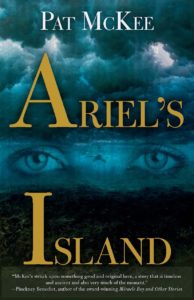
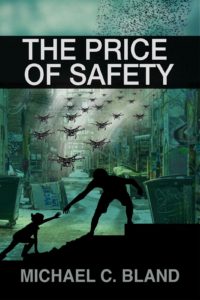
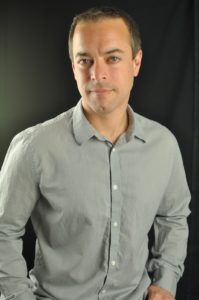 MICHAEL C. BLAND
MICHAEL C. BLAND MICHELLE CAMERON is a director of The Writers Circle, an NJ-based organization that offers creative writing programs to children, teens, and adults, and the author of works of historical fiction and poetry: Beyond the Ghetto Gates (She Writes Press, 2020), The Fruit of Her Hands: The Story of Shira of Ashkenaz (Pocket, 2009), and In the Shadow of the Globe (Lit Pot Press, 2003). She lived in Israel for fifteen years (including three weeks in a bomb shelter during the Yom Kippur War) and served as an officer in the Israeli army teaching air force cadets technical English. Michelle lives in New Jersey with her husband and has two grown sons of whom she is inordinately proud. Visit her website for more information
MICHELLE CAMERON is a director of The Writers Circle, an NJ-based organization that offers creative writing programs to children, teens, and adults, and the author of works of historical fiction and poetry: Beyond the Ghetto Gates (She Writes Press, 2020), The Fruit of Her Hands: The Story of Shira of Ashkenaz (Pocket, 2009), and In the Shadow of the Globe (Lit Pot Press, 2003). She lived in Israel for fifteen years (including three weeks in a bomb shelter during the Yom Kippur War) and served as an officer in the Israeli army teaching air force cadets technical English. Michelle lives in New Jersey with her husband and has two grown sons of whom she is inordinately proud. Visit her website for more information 